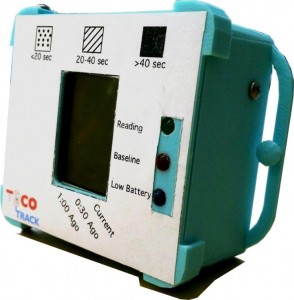An introduction to the 401(k) Retirement Plan
This article is sponsored in part by Become a sponsor – (what’s this?)

401k retirement plans are probably the most useful (if not the only) retirement vehicles that new engineers have at their disposal. This article attempts to highlight the importance of participating in a 401k retirement plan offered by your company.
What is 401(k)?
401(k) plans are named after the section of the Internal Revenue Code in which they appear. Basically, a 401(k) retirement plan is a participant-directed retirement account funded through direct withdrawals from a participant’s paycheck.
Unless your company provides its employees with some kind of a pension, the 401(k) plan might be the only retirement vehicle available to you. Most engineering companies sponsor 401(k) retirement plans which are managed by a third party (Scottrade, for example).
Why contribute to a 401(k)?
Just 50 years ago, any decent job offered a pension that guaranteed you payment of a percentage of your salary after you retired. However that changed in 1986 when congress replaced the defined benefit plan for federal civilian workers with a less generous defined benefit plan and a generous 401(k)-type plan. This was very appealing to both employers and employees because the retirement responsibility and obligation was shifted entirely to the employee.
Benefits of 401k plans
One of the most interesting features of the 401k plans is that you control how much money you want to contribute to your 401(k) and your employer automatically takes that money out of your paycheck to deposit in your plan. Some companies might match a portion of your contribution. It is therefore important that you take sign up as soon as you are eligible to take advantage of this match.
Some additional benefits include the following,
- Some employers match a percent of your contribution – Basically, think of the matched amount as free money, you lose it if you don’t take it.
- Tax deferred savings – Your 401(k) account is not subject to federal taxes until you make a withdrawal. That means that your investments grow tax-free for decades. However, if you decide to withdraw from your account before retirement, the IRS taxes you accordingly.
- Large deferral limits – As of 2009 the IRS allows employees to defer up to $16,500. If you are over 50 years of age, the limit amount is $22,000.
- 401(k) rollovers – Thanks to the 401(k) rollover; a 401(k) retirement plan is highly portable. As it is unlikely you will work for one employer throughout your career, so you have the option of rolling over your 401(k) into a new company’s plan or an Individual Retirement Account (IRA) without incurring any tax penalties.
If you haven’t already, sign up and start contributing today
There is no reason not to take advantage of a 401(k) retirement plan if your company offers one. Remember, just like any other investment, the earlier you contribute the higher your potential future returns. Sign up today and start working towards a comfortable retirement.
Landing your first job as an engineer | Back Next | Transitioning from college to work



I’ve recently moved to Australia to further my engineering career. The 401k plan and Australian superannuation
sound very much alike. Both seem to be putting control back into the hands of the individual in these uncertain times…best to invest more now as the market is down….it’s that old principle of “buy low, sell high”….